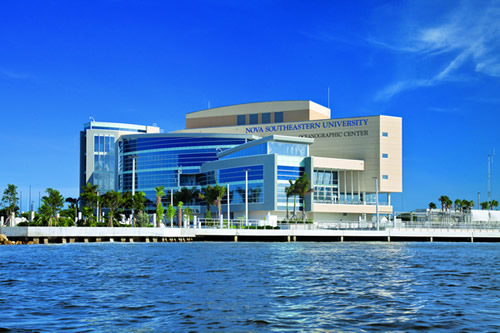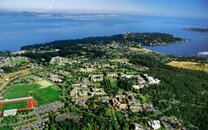UC Santa Cruz has a very active dive program and a good science undergraduate program with several field courses. Recreational scuba classes are no-credit PE classes but are geared for both fun divers and divers aiming to become scientific divers for the the University. There's also the Scuba Slugs club that's tied in. The Course Director runs the program, club, and is in direct cooperation with the DSO who runs the scientific dive program. Students are nominated to run the club, while the CD supervises. The 3 local shops all support the program with discounts and gear to active club/student divers.
Big community within the Scuba Slug dive program.
http://opers1.ucsc.edu/scuba/
The UCSC Long Marine Lab, where the sci dive program operates out of, has opportunities for intertidal research, coastal, marine mammal behavioral training, oceanography labs, PISCO, aquarist husbandry, etc etc.
Both scuba and non-scuba opportunities.
Monterey Bay Aquarium, Marine Mammal Rescue Center, Reef Check, NOAA, and various other agencies takes a lot of our undergrad, graduate, and graduated for volunteerships and internships. Right now they're in an upswing with funding and a lot of my friends are getting paid gigs, even for their summer undergrad. Not always like that.
School's going to cost you a pretty penny though.
CSUMB (Cal State Uni. Monterey Bay) is just as good and cheaper as a state school. Different undergrad program though, but they have a great scuba training regime and Sci Dive program at Moss Landing.
Not a big club or community basis though. UCSC wins out against them in that category
If you're aim is to do Marine Mammal Behavioral training or research then UCSC is the place to be. But competition is high to volunteer as an animal trainer.
Otherwise you can get everything else at the other Uni's like U.Florida, Texas A&M, UCSB, Humbolt State, and CSUMB.
Dive club isn't so as important as Scientific Dive Program, if you're looking to use scuba diving as part of your biology career.






